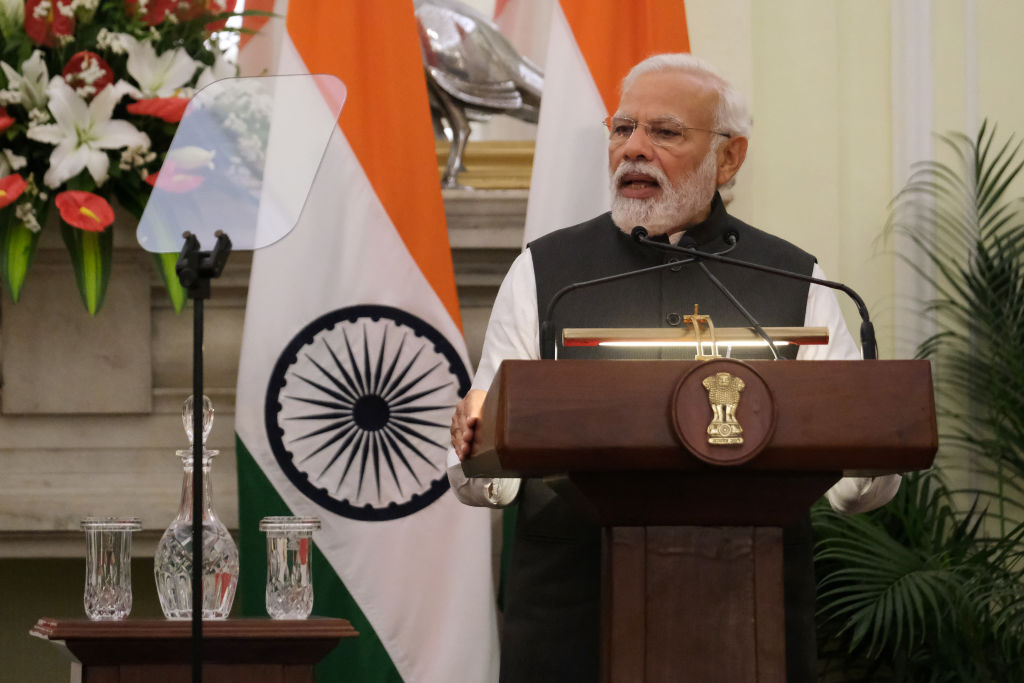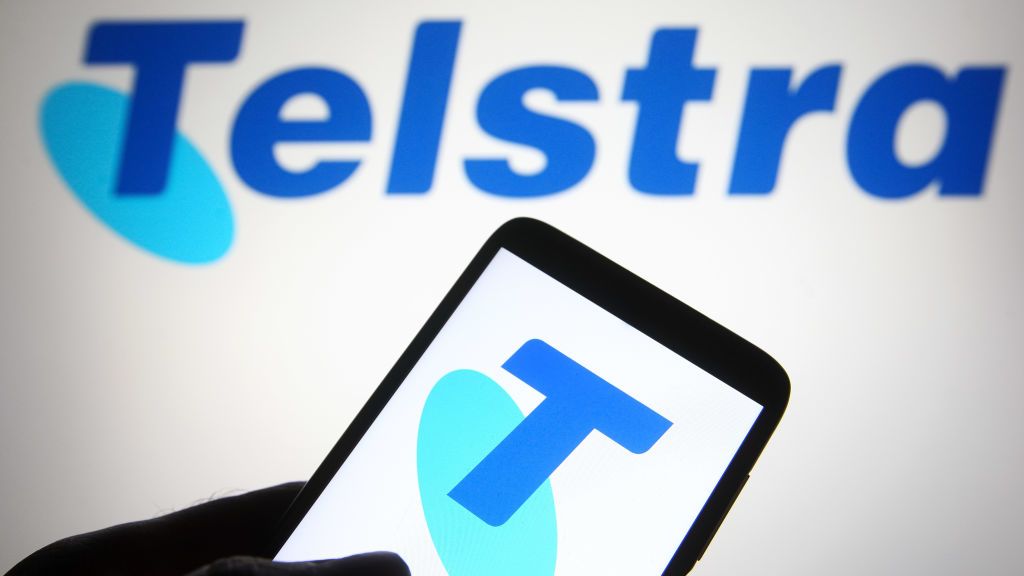India’s new data protection bill continues to “facilitate state surveillance”
Although data localisation requirements have now been removed, it’s down to the Indian government to select which countries data is allowed to be sent to


Fresh accusations have been made against the latest draft of India’s data protection bill, alleging that it continues to facilitate state surveillance.
India’s Internet Freedom Foundation (IFF), an Indian digital liberties organisation, said that the new draft retains the wide and vague exemptions that were present in previous interactions of the Bill - key clauses that would provide the government powers that could violate the privacy of its citizens.
RELATED RESOURCE

“This is because these standards are excessively vague and broad, therefore open to misinterpretation and misuse,” said the IFF. “If the law is not applied to government instrumentalities, data collection and processing in the absence of any data protection standards could result in mass surveillance.”
The IFF said that it’s essential for government collection and processing of citizen data to be regulated as well, to avoid any misuse.
Additionally, the data protection board (DPB), which is set to be formed through the Bill, will not have the independence needed to protect the data laws. This is because the government has the power to prescribe the composition of the board, the selection process, and remove its chair and other members.
The IFF said that this may result in the board reflecting the hierarchies of government, and since it’s meant to oversee the compliance of the legislation by the private sector as well as government agencies, it’s important for it to be fully independent.
The Indian government released the draft of its Digital Personal Data Protection Bill 2022 on 18 November and has made it available for public feedback until 17 December. This comes after it decided to withdraw the Bill’s predecessor in August 2022, the Personal Data Protection Bill that was first proposed in 2019, to develop a new law instead.
Get the ITPro daily newsletter
Sign up today and you will receive a free copy of our Future Focus 2025 report - the leading guidance on AI, cybersecurity and other IT challenges as per 700+ senior executives
The IFF highlighted how the latest draft eliminated many of the clauses that were in the previous version of the Bill. It now contains around 30 clauses, reduced from more than 90 in previous versions.
The Indian government said this was to draft it in simple and plain language so that more people could understand its provisions. The IFF argued this has removed key information, adding that since the public consultation accompanying the Bill will not be disclosed it will also weaken public trust in the development of the Bill.
One of the biggest changes of the Bill is that it removes data localisation requirements, opening the path to cross-border data transfers. However, the IFF said that data fiduciaries, similar to data controllers under GDPR, are only able to transfer personal data to countries that the government selects, meaning that data transfer to any other country is not allowed. The clause also doesn’t define how the government should decide which countries can be chosen to allow data transfers to.
“This enables arbitrary exercise of power where countries may be selected or not selected based on considerations other than protection of personal data of Indians,” said the IFF. “This is in contrast with Articles 44 to 50 of the General Data Protection Regime which permits the transfer of personal data of Europeans only to such countries which provide a minimum level of protection to such data.”
The IFF also outlined some positive changes in the new Bill. Data fiduciaries are now forced to notify the DPB whenever they’ve suffered a breach, and then the DPB is able to tell the fiduciary to adopt urgent measures to remedy the personal data breach or mitigate any harm.
The digital liberties group said this was important as previous iterations of the Bill didn’t require fiduciaries to notify data principals in the event of a breach. Users wouldn’t have known that their data had been compromised because of this.
Additionally, more barriers have been introduced when it comes to processing children’s personal data. There are tighter restrictions around how entities carry out tracking or behavioural monitoring of children, including targeted advertising aimed directly at them.
Zach Marzouk is a former ITPro, CloudPro, and ChannelPro staff writer, covering topics like security, privacy, worker rights, and startups, primarily in the Asia Pacific and the US regions. Zach joined ITPro in 2017 where he was introduced to the world of B2B technology as a junior staff writer, before he returned to Argentina in 2018, working in communications and as a copywriter. In 2021, he made his way back to ITPro as a staff writer during the pandemic, before joining the world of freelance in 2022.
-
 Cleo attack victim list grows as Hertz confirms customer data stolen
Cleo attack victim list grows as Hertz confirms customer data stolenNews Hertz has confirmed it suffered a data breach as a result of the Cleo zero-day vulnerability in late 2024, with the car rental giant warning that customer data was stolen.
By Ross Kelly
-
 Lateral moves in tech: Why leaders should support employee mobility
Lateral moves in tech: Why leaders should support employee mobilityIn-depth Encouraging staff to switch roles can have long-term benefits for skills in the tech sector
By Keri Allan
-
 Latitude Financial's data policies questioned after more than 14 million records stolen
Latitude Financial's data policies questioned after more than 14 million records stolenNews Some of the data is from at least 2005 and includes customers’ name, address, and date of birth
By Zach Marzouk
-
 Latitude hack now under state investigation as customers struggle to protect their accounts
Latitude hack now under state investigation as customers struggle to protect their accountsNews The cyber attack has affected around 330,000 customers, although the company has said this is likely to increase
By Zach Marzouk
-
 IDCARE: Meet the cyber security charity shaping Australia and New Zealand's data breach response
IDCARE: Meet the cyber security charity shaping Australia and New Zealand's data breach responseCase Studies IDCARE is recruiting a reserve army to turbocharge the fightback against cyber crime not just in the region, but in the interests of victims all over the world
By Zach Marzouk
-
 Australia commits to establishing second national cyber security agency
Australia commits to establishing second national cyber security agencyNews The country is still aiming to be the most cyber-secure country in the world by 2030
By Zach Marzouk
-
 Medibank bleeds $26 million in cyber costs following hack
Medibank bleeds $26 million in cyber costs following hackNews The company believes this figure could rise to $45 million for the 2023 financial year
By Zach Marzouk
-
 TikTok's two new European data centres to address data protection concerns
TikTok's two new European data centres to address data protection concernsNews The company is under pressure to prove its user data isn’t being accessed by the Chinese state
By Zach Marzouk
-
 Cyber attack on Australia’s TPG Telecom affects 15,000 customers
Cyber attack on Australia’s TPG Telecom affects 15,000 customersNews It is the third cyber attack on a major Australian telco since October
By Zach Marzouk
-
 Telstra blames IT blunder for leak of 130,000 customer records
Telstra blames IT blunder for leak of 130,000 customer recordsNews Australia’s biggest telco said that the error was due to a mismanagement of databases and not a cyber attack
By Zach Marzouk